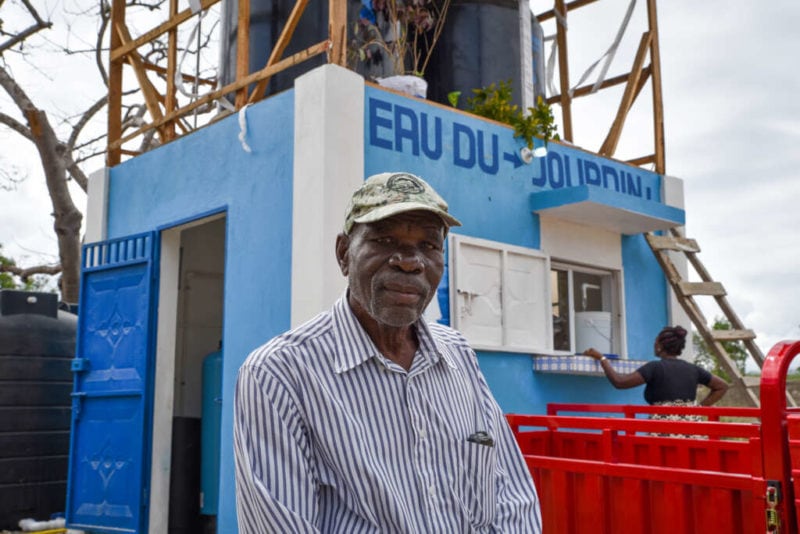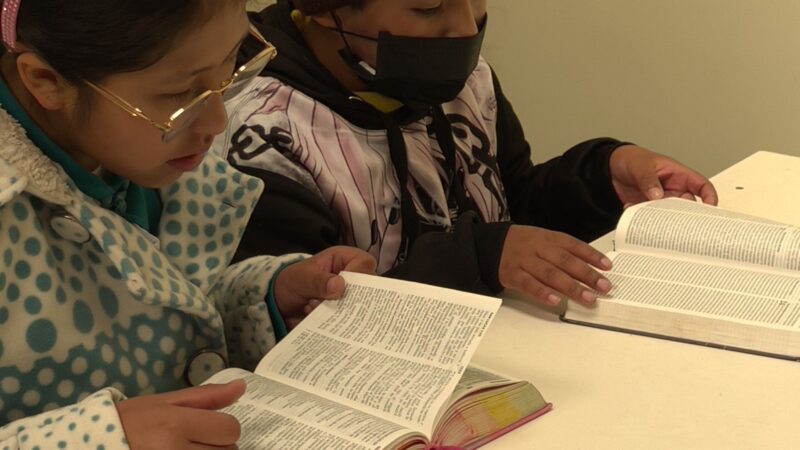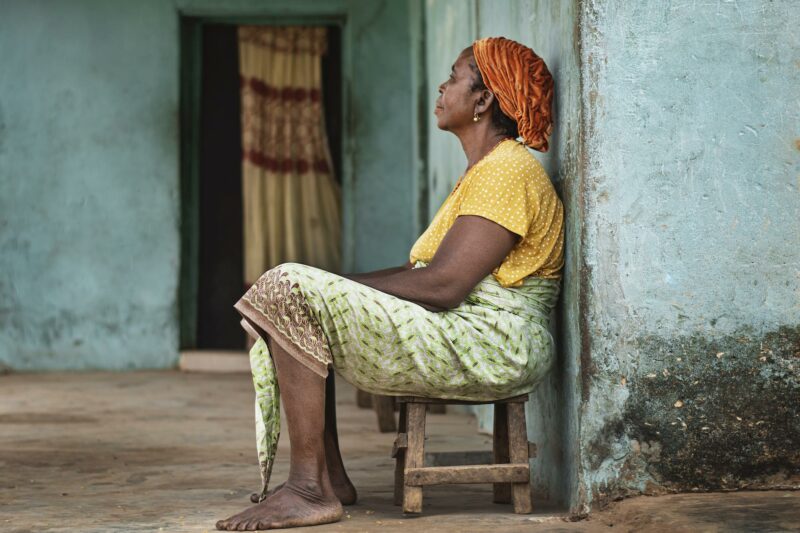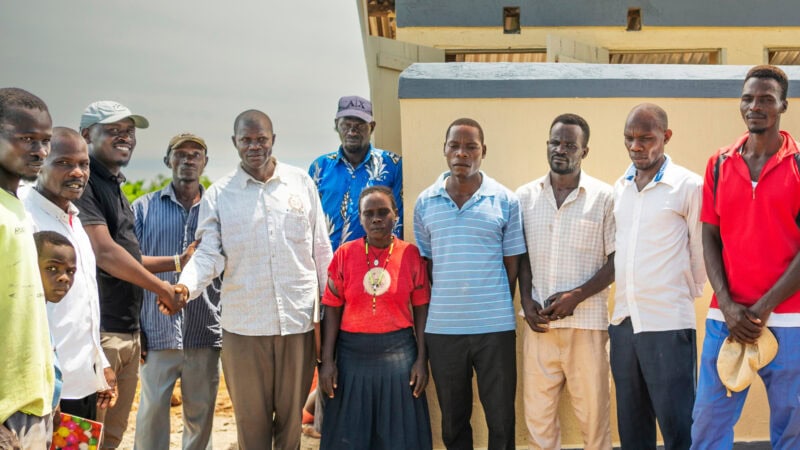Reprinted with permission by Kevin Dyer.*
Haiti is trapped in the very painful cycle of disasters, donations and dependency. Each year there is a disaster – a hurricane, a riot, a flood, a drought or an earthquake. Donations flow into Haiti as long as the disaster is fresh in the minds of people around the world. However, soon people forget or another disaster somewhere else diverts their attention. The money flow stops, but the Haitian people continue to look to foreign aid for survival. Dependency is the mindset of many Haitians as they expect others to continuously help them.
This is very sad for the people of Haiti as it damages their self-worth and autonomy, and it creates a serious environment of dependency that is not easily changed. It has gone on for many, many years, and there are millions of people who prefer the ease of dependency to the hard work of sustainability.
On the opposite side of the dilemma, people in Western nations have a difficult time believing that their compassion and kindness can sometimes hurt and hinder the work of the Gospel. When we help hurting people, it makes us feel good. It is hard for us to grasp that when we give generously to the poor, as the Lord said we should, that people can be hurt by our generosity.
So what do we do?
We face two serious questions. Should the Haitian people not be given the help that they so desperately need because they can become dependent upon it? Should people stop giving money to poor believers and communities because they can’t be sure if it will help or hurt?
This struggle between dependency and sustainability is not just in Haiti but in Africa, Asia and Latin America as well. If dependency is created, it wreaks havoc on the believers and strips them of their individuality and resourcefulness.
For many years, some national churches, evangelism outreaches, and care programs in poor countries have only been able to operate and continue in ministry because of Western money and people.
Many national workers are paid by missionaries to do work related to their ministry, and the danger is if the missionary or money is removed, the ministry collapses. Unfortunately, this often leads to unhealthy dependency; and once that has taken root, it is very difficult to dislodge.
A local church or national ministry that requires funding or leadership from outside its own community fosters dependency. For a church or ministry to be sustainable, it must be able to carry out its core biblical and economic functions without relying on foreign funding or leadership.
The problem of dependency
Dependency tends to erode self-respect and promotes a sense of entitlement. It dampens local giving and stifles a reliance on God.
Dependency is often the root of misappropriated money and can cause jealousy among local leaders. When Western ministries hire nationals for their work instead of placing the responsibilities in the hands of the local church, the efforts of the local church are diminished. Dependency tends to produce ministries with little sustainability.
At Bright Hope, we have struggled with these issues for decades.
Finding a biblical model of ministry that really helps the poor without creating dependency has been a long and difficult journey, but the Lord has helped us significantly reduce the dependency model and work constructively and lovingly toward a sustainability model.
An alternative way to fight poverty
We have been working in northern Haiti in several small towns seeking to help very poor believers in local churches. Right now, we are trying to address some long-term issues like providing clean water for the people. Before we start trying to find solutions, we have a national worker lead an Asset Based Community Development seminar that lasts for several Saturday mornings.
The focus of this time is to discover what the local believers have to offer. We want to start with finding out what gifts God has given them. We must be very careful not to assume that poor people have nothing to give back to God because they are poor.
In our seminars, we may find a woman who can monitor the water supply for impurities. We may find a young man who has had some elementary first-aid training and has the skills to be able to help children with diarrhea caused by contaminated water.
We may discover a person who has a successful garden and can teach others about how to grow and cook vegetables that will enable them be healthier. We try to discover everyone’s gifts and skills, and we teach believers how to use them to help others.
Some of the women in these local churches can visit poor families in the community to make sure that there is a food supply so that the children get nutritious meals. Some of the men can help repair a widow’s roof so it can catch rainwater and be filtered so the family has much needed clean water.
It is amazing how excited people can get when they know they have something to contribute to the community.
During the seminars, we teach and model stewardship. For example, if we give ten chickens to a poor family, we ask them to agree to give a chicken from each group of eggs hatched to another poor family nearby. We want them to learn to be generous with others.
Take care with foreign financial support
In addition, we want to reduce the flow of foreign money for local ongoing programs. We don’t want to start programs that create a dependency on us to keep them going. Before we started the clean water initiative in Haiti, we had the leaders of the local church talk to the believers about their responsibility to keep the purification process clean so contamination won’t take place.
We also want families to learn how to avoid wasting water.
As a result, a committee of three local people in the church accepted responsibility to manage the water usage. They sell some water to enable them to pay for repairs and upkeep and also to give free water to people in the church who are destitute. Sustainability is built into the process. When we leave, they can continue to provide clean water to the believers and others in the community.
Our goal is not to do anything that the local believers haven’t initiated and can continue without our help. That is sustainability.
Whenever funds are given for projects without regard to the capability of national believers to manage and maintain them by their own efforts and money, dependency is a distinct possibility.
Bright Hope implements the following process to help keep the balance between sustainability and dependency.
1) RELIEF – Hope for Today
When a crisis occurs and the lives of people are at risk, we immediately do everything we can to save lives and bring hope. That means providing food, water, healthcare and anything else necessary to help people caught in circumstances beyond their control.
The Bible is very clear about this. “If anyone has material possessions and sees his brother in need but has no pity on him, how can the love of God be in him?” (I John 3:17).
This is meeting the critical needs of people, and the Lord asks us to be compassionate and caring toward those in trouble. We are committed to providing emergency help that gives immediate relief.
2) RESTORATION – Hope for Tomorrow
Our goal must be to move beyond the immediate crisis for relief and work to help people find hope in their daily life situations through restoration.
We must enable them to choose plans that they can complete themselves to generate a sustainable income that will lift them out of debilitating poverty. This includes growing a garden, raising chickens, pigs or goats, or developing a small business that will help lift them up without depending on others.
Restoration includes encouraging them to be a part of a savings plan to put aside $1 a week for their future needs. Often the average family earns $2 a day, or $14 a week, so to save $1 a week is a big sacrifice.
However, after learning about stewardship from the church, many commit to the practice. After a year, a family may have saved up to $50.
Through the guidance of the church leaders, they may make a loan to someone in the fellowship and earn interest. This teaches them about planning and working toward meeting future needs and helps them become self-sustaining and not dependent on others for a handout.
This is restoration, and it changes the dynamic of the family and gives them hope for the days ahead.
Bethesda church in the slums of La Paz, Bolivia, now has ninety-eight poor families in their congregation who have loans to develop small businesses. With the interest they receive from these loans, Bethesda has the funds to run programs for poor children in several communities. They provide food, education, and Bible teaching to seventy children in one area and thirty-eight in another.
This local church in a slum community no longer needs outside assistance but is completely self-sustainable because the loan program empowers their families to develop income-generating programs.
Shadia is an eleven-year-old girl in Africa.
She is one of eleven children. When her father and mother received ten chickens from Bright Hope, Shadia took charge. The chickens multiplied and soon they were producing sixty eggs a week. She sold some eggs in the market. That gave them enough money to pay school fees for the children. As a family, they also had eggs to eat.
Then Shadia purchased vegetable seed from the proceeds and grew a garden so they had fresh vegetables to eat and to sell in the market. She encouraged her older siblings to do odd jobs for others like carrying water or planting gardens. This additional income helped the family’s finances.
Shadia made loans to family members and charged them two percent interest. They now have a family savings account for emergencies. The life of this large, poor family has been radically changed as they have gone from dependency to sustainability. That’s restoration.
3) REDEMPTION – Hope for Eternity
In everything we do, there is an evangelistic component. We want people to know Jesus as their Saviour. Because we do everything through the local church, the believers can share the Lord with people within their cultural context. When people trust Christ and are reconciled to God and others, often their lives are radically changed, and they delight in being able to care for their families without being dependent on outside help.
It is transformative to see families radically changed, sending their children to school, eating nutritious food, and learning about how Christ can lead them through a joyful life filled with hope, even as they live in very poor communities.
All of us in Western countries should work together to help people become self-sustainable.
- When you give, make sure your gift goes to sustainable projects and not ones that create dependency.
- When you pray, ask the Lord to bring radical change to people caught in poverty through life-giving projects that they can sustain without outside help.
- When you go, make sure you work with national churches that are committed to teaching believers biblical principles that will set them free from the bondage of dependency and bring them into the great joy of sustainability.
This will be pleasing to the Lord, and his Name will be glorified.
*For a free copy of Kevin Dyer’s new book, Things I’ve Learned Along the Way, send an email to kevinandeloise@brighthope.org and give your mailing address. He will be happy to send you one.





